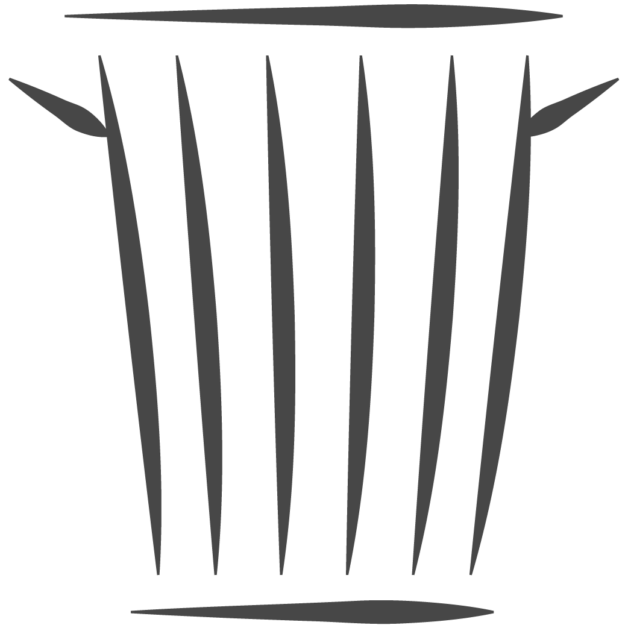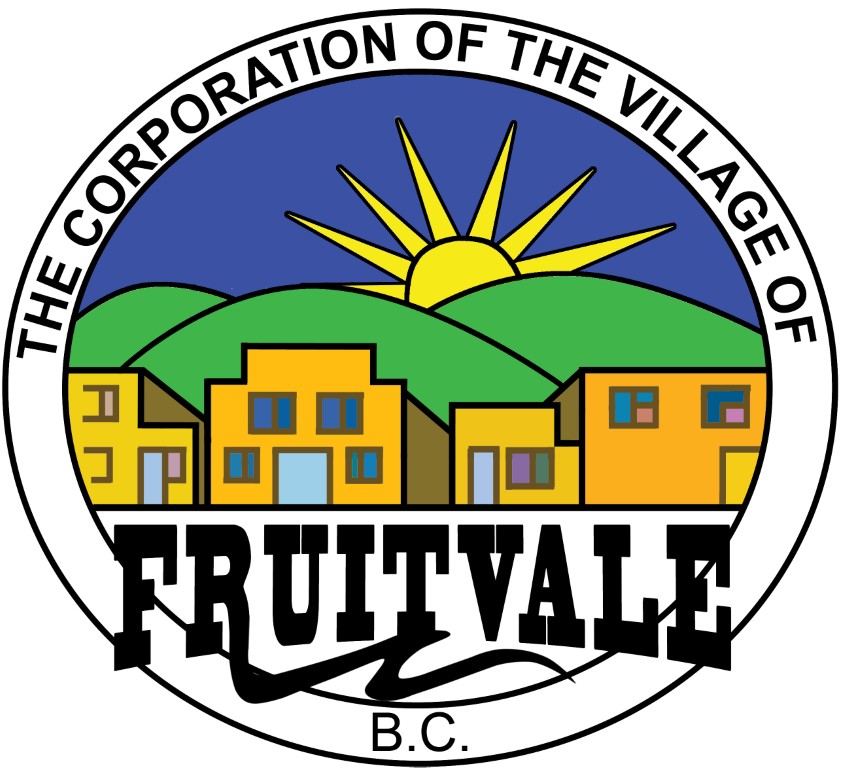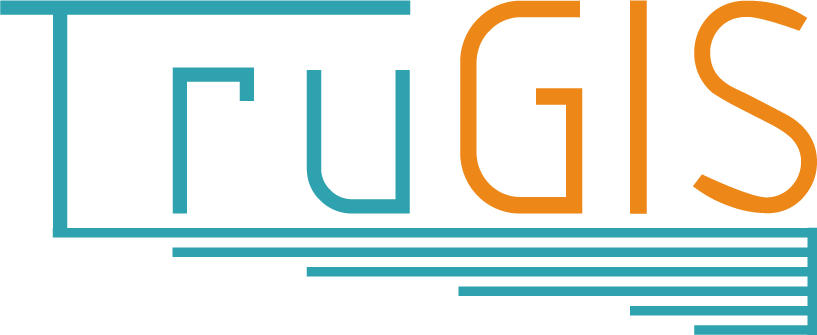
Village of Fruitvale Garbage, Green Bins, Recycling Collection and Spring and Fall Clean-up dates
GARBAGE
Residential garbage collection is a regionalized service. RDKB has contracted the residential garbage collection to GFL. Regular garbage bags can be used however they require a garbage tag.
Residents are required to purchase tags for their bags. These tags are available at the Village Office and Liberty Foods in Fruitvale and at various businesses in Trail, Warfield and Rossland.
- Bags that are too heavy to lift up into the garbage truck, bags that are not tied shut, and bags without a green tag will not be picked up.
- Garbage must be to the curb for 7:30 a.m. to ensure pick-up.
- The truck will not return to pick up garbage that wasn’t at the curb when the truck goes by.
- Litter containers downtown and in the parks are not to be used for household garbage. Litter containers are for items such as beverage cups and food wrappers.
- Throwing garbage on the ground is an offense under the “Parks Regulation By-law No. 459, 1989” and is subject to a fine.
Help keep Fruitvale clean by disposing of garbage properly!
RECYCLING
The Village of Fruitvale Council has adopted a “Zero Waste” policy which coincides with the Regional District of Kootenay Boundaries Zero Waste Strategy.
What can and can’t be recycled in curbside recycling? Visit here to find out.
Remember to:
- Empty and rinse your containers
- Remove caps, lids, pumps and place loose in blue box
- Return deposit containers to the Trail Bottle Depot
- Located at 1562 Rossland Ave, Trail
- Return for Deposit containers are not recyclable 🙁
Click below to learn how to recycle your old electronics:
For more information on recycling, visit RecycleBC
Zero Waste is a philosophy and a design principle for the 21st Century that includes ‘‘recycling’‘, but goes beyond recycling by taking a ‘‘whole system’‘ approach to the vast flow of resources and waste through human society. Zero Waste maximizes recycling, minimizes waste, reduces consumption and ensures that products are made to be reused, repaired or recycled back into nature or the marketplace. Click here to learn more about Zero Waste.
Alpine Recycling is the contractor for the Blue Box & Recycling Program. Blue box recycling is done once every two weeks and boxes must be placed at the curb before 7:00 a.m. on your recycling day.
Each residence in Fruitvale was given a blue box and a blue bag in which to place their recyclable items:
- All cans, plastic bottles, and glass jars must be washed and (flattened if possible) and labels removed before placing in the blue box
- Newspapers and flyers go in the bottom of the blue box
- All mixed paper, including the labels from the cans, bottles and jars go in the blue bag, again flattening cereal boxes and the like before placing in the bag
- Extra boxes and bags can be purchased at the Village Office for a nominal charge.
If you are unable to wait for curbside recycling, there are large recycling bins at the McKelvey Creek Landfill Site in Trail, BC.
Click Here to read: “Ways To Reduce Your Garbage”
COMPOSTING / GREEN BIN PROGRAM
Why compost you ask? Composters turn yard and kitchen waste into fertilizer, which can be used on your lawn, garden and plants, thus reducing household waste and saving time and money in the long run. To learn more about back yard composting visit the Recycling Council of BC or the BC Government Waste Management compost page.
The RDKB’s Green Bin Program was introduced in the summer of 2023. Visit the RDKB’s Q&A page or view the Address Search App to find out your area’s green bin collection schedule.
RECYCLING NEWS
– Milk and Plant-Based Beverage Containers Join Deposit System Feb 1
Starting on February 1, 2022 milk and plant-based beverage containers will be part of the BC deposit program. This means a 10c deposit will be charged on “ready to drink” milk and plant-based beverages, like oat milk, soy milk or almond milk.
Residents can receive the deposit refund when the container is returned to a participating return location. This change is a result of an amendment to the BC Recycling Regulation, made by the Province of BC.
*You can continue to put milk and plant-based beverage containers in your blue box or container bin for recycling (it won’t count as contamination), and we will continue to collect and recycle them, just like we do with aluminum beverage cans or plastic beverage bottles. If you choose to do this, you will not receive your deposit refund.
The containers that are being transferred to the deposit program include:
- Milk and plant-based beverage cartons
- Milk and plant-based beverage plastic jugs and containers
- Milk and plant-based beverage metal containers
- Milk and plant-based beverage glass containers
The following product containers will not have a deposit added and remain in the Recycle BC program:
- Whipping cream
- Coffee cream or other coffee additives
- Buttermilk
- Drinkable yogurt
- Infant formula
- Dietary or meal supplement
- Any dairy concentrates
- Condensed or evaporated milk
- Modified milk-derived products (e.g. kefir)
- Yogurt, pudding, cheese, ice cream etc.
For more information, and educational resources visit Return-It.ca.
pRECYCLING
What is pRecycling you ask?
pRecycling means you are not purchasing garbage to begin with by consciously choosing items that reduce your household garbage.
Most of us know the Three R’s of waste reduction: Reduce, Reuse, Recycle. These are the basics but there are a couple of more R’s in ZERO Waste. Sure, part of ZERO Waste is to practice Recycling, but when you are walking the aisles of the grocery store, there are a couple things to think about.
It may mean looking a little harder or paying a little more for items which are not ‘disposable’. These items do not show the complete costs of disposal. Items that are designed for obsolescence often contain toxic ingredients that will last for generations before they break down.
Plastics and Styrofoam are unrealistically cheap, yet are made of an increasingly scarce natural resource – petroleum. Choices we make in the grocery store have long-term impacts. The Village of Fruitvale is working with the RDKB to become a ZERO Waste community and we are encouraging residents to be active in Refusing unnecessary packaging. Be confident about asking your grocer for products that Reduce garbage.
Did you know that the average Canadian throws away the equivalent of their body weight each month? Let your friends know what you are doing to reduce your ‘waste’ and ask them what they are doing to reduce theirs. We all have to work together to achieve the goal of ZERO Waste!
Choose these products when you are pRecycling:
- Plastic milk jugs: #2 plastic is easy to recycle. Milk cartons are recyclable with plastics in your blue box. Also consider glass milk containers where they are available.
- Fresh fruit & veggies: you’ll have to eat more processed and packaged produce to get the same nutritional value found in fresh, locally-grown produce.
- Shop the bulk foods section: buy only what you need. ReUse the bags or bring your own.
- Concentrated products: less volume means less packaging is needed. e.g. laundry detergent.
- Products that use recycled materials: complete ‘recycling’ requires consumer demand for products that use recycled material. Close the Loop!
- Rechargeable batteries: these are significantly cheaper in the long run and always handy.
- Reusable containers: some items are packaged in containers designed to be reused. e.g. mustard in glass mugs.
- Vinegar and baking soda: Some of the most effective and least toxic household cleaners.
Avoid these products:
- Disposable mops and any single use cleaning products as these items needlessly replace reusable rags.
- Disposable anything: many disposable products contain materials that are toxic and pose a threat to our ground water. Look for safer alternatives.
- Toxic products: Ask for alternatives to toxic cleaners, varnishes and paints.
- Film plastic (plastic bags)
If you are concerned about excess packaging, bring these concerns to the attention of your retailer and take the time to contact the product manufacturer with your comments.
YARD TRIMMINGS
Yard trimmings such as leaves, hedge clippings, brush, branches and grass clippings are collected twice a year, in April during spring clean-up and October during fall clean-up.
- Only organic materials will be picked up
- Use Brown Paper Bags or containers for leaves & grass clippings
- Bundle & tie tree clippings – with cotton or fiber-based string. NO Nylon or plastic based string. Branches no longer than 4 feet in length.
- Place your materials at your normal garbage pickup location by 7:00 a.m.
- Rocks and heavy bags will not be picked up
The MCKELVEY CREEK LANDFILL SITE in Trail also accepts organic yard waste for a fee.
Remember: Nothing will change unless you do Something.
Village Office: Mon – Fri
8:30am – 4:00 pm
Public Works: Mon – Fri
7:00 am – 3:30 pm


